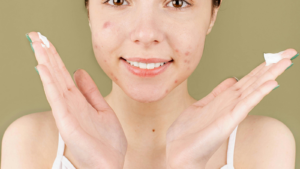From physical fitness to mental well-being, the spectrum of teen health and wellness is broad and multifaceted. As they tread the path of self-discovery, teens must learn to balance academic pressures, social dynamics, and personal growth. With the right guidance, they can thrive during these transformative years. So, let’s explore the essential elements of teen health and wellness, providing a roadmap for young adults to navigate this exciting, yet challenging phase of life.
Teen Health and Wellness
The Importance of Physical Health
Physical health offers manifold benefits in teen development. Regular physical activity strengthens the bones, boosts heart health, improves muscle strength, and maintains a healthy weight. The American Heart Association confirms that teenagers obtaining 60 minutes of moderate to vigorous physical activity daily, achieve these benefits, optimizing their physiological well-being.
Mental Health Challenges for Teens
Amid physical developments, teenagers encounter significant mental health challenges. The National Institute of Mental Health states that in 2016, an estimated 3.1 million adolescents aged 12 to 17 in the United States experienced at least one major depressive episode.
These mental health struggles can lead to detrimental effects on their emotional and academic well-being. For example, a teenager battling depression may exhibit a considerable drop in their academic performance and lack interest in their hobbies and interests.
The Role of Nutrition in Teen Development
Nutrition remains instrumental in teen development, serving as the cornerstone of their overall health and wellness journey. According to the World Health Organization, a balanced diet aids in fostering proper growth and development, reducing the risk of chronic diseases.

To elucidate, teenagers consuming adequate fruits and vegetables receive vital nutrients, such as vitamin C, providing them with anti-oxidative properties to combat harmful free radicals, promoting healthier growth.
Common Health Concerns Among Teens
Dealing with Acne and Skin Care
Acne, an inescapable part of teenage life for many, falls under prevalent health concerns for teens. Hormonal changes during puberty might trigger outbreaks of spots and pimples, often leading to distress and lowered self-esteem among the affected. Dermatologists advocate adherence to a robust skincare routine—cleansing, toning, and moisturizing—as a strategic response. Moreover, dermatology prescriptions and over-the-counter treatments, tailored to individual skin types, can curb inflammation and redness while obstructing new blemishes from forming.
The Impact of Sleep on Teen Well-Being
An often-underestimated component of teen health and wellness revolves around restful sleep. Increased academic and social commitments frequently push sleep to the sidelines, promoting a culture of nocturnal productivity. However, the National Sleep Foundation recommends eight to ten hours of sleep for teenagers. It stipulates that insufficient sleep correlates with mood disorders, impaired cognitive function, and weakened immune systems.
Navigating Teen Obesity and Fitness

As per the World Health Organization, 340 million children and teens, aged 5-19, were overweight or obese in 2016. Obesity in teens can lead to health complications like type 2 diabetes, heart disease, and sleep apnea. Incorporation of physical exercise into daily routines combats sedentary lifestyles, thereby mitigating obesity risk. Alongside regular activity, a balanced diet rich in fruits, vegetables, and lean proteins aids in maintaining optimal weight.
Promoting Positive Mental Health
Strategies to Cope With Anxiety and Stress
Anxiety and stress are ardent health concerns that may intrude on a teen’s everyday life. Many may experience these due to academic pressures, extracurricular demands, familial expectations, or social pressures. However, through healthy coping mechanisms, teens can mitigate their adverse effects.
- Mindfulness and Meditation.
- Regular Physical Action.
- Healthy Social Connections.
- Professional Help.
Building Self-Esteem and Body Image
The adolescent phase often brews insecurities about body image and self-esteem, which can snowball into severe mental health issues if left unattended. Therefore, positive self-esteem and body image are invaluable in ensuring a teen’s mental health and wellness.

- Resilience.
- Healthy Lifestyle.
- Gratitude Journaling.
- Supportive Environments.
Must Know About Teen Health and Wellness
Teen health and wellness isn’t just about physical fitness or eating right. It’s an all-encompassing approach that involves mental well-being, self-esteem, and resilience. Physical activity and nutrition play pivotal roles, but so too do mindfulness, social connections, and professional help. So let’s continue to foster supportive environments and instill these strategies in our teens. After all, the wellness habits they form now will shape their future health.

